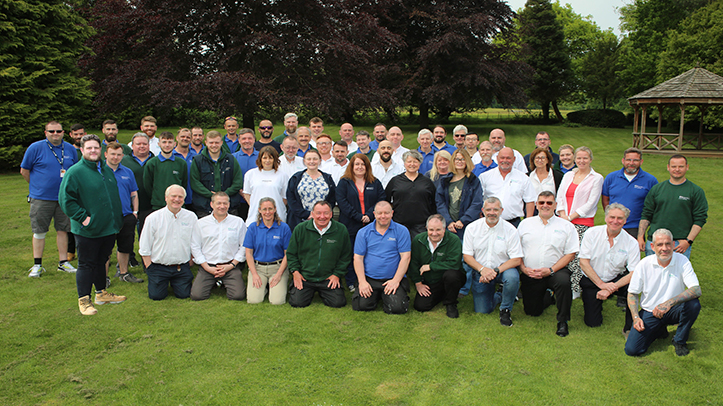Paul Bates, managing director, Cleankill Pest Control, says that after 44 years in the pest control industry, he’s seen enormous changes – not just in the technology and legislation that shape the work, but in how businesses are built and led
One of the most valuable lessons I’ve learned over the decades is this: if you want your company to grow, you must learn to trust your people – especially your sales team – and be open to learning from them, no matter how long you’ve been in the game.
The danger is that when you start a business yourself you don’t trust that others can do the job as well as you.
I have learned so much from my young staff. When they suggest what they think is a new way of doing things, there’s a temptation to say: “I did that 20 years ago and failed”.
Now I allow them to try and often they succeed where I failed. If they do fail, they learn – and I strongly believe that failing is learning.
However, you shouldn’t be afraid to step in occasionally – sometimes it’s a small tweak that will get a staff member back on track.
It’s easy for experienced business leaders to fall into the trap of thinking they have all the answers. Experience is undoubtedly important, but it can also create blind spots. The danger lies in assuming that the way we did things ten or twenty years ago will still work today. In a competitive industry like pest control, where client expectations are constantly evolving, that mindset can stifle growth.
At Cleankill, we’ve always placed a strong emphasis on hiring good people and giving them the tools and freedom to succeed. Our sales staff, in particular, are not just order-takers – they are the face of our business, the main point of contact for new clients (after the clients have dealt with an efficient administration team on phones and emails!), and a key source of insight into what the customer actually wants.
If you don’t trust them, you’ll never hear those insights – and you’ll miss opportunities to grow.
Trusting your salespeople doesn’t mean abandoning oversight or accountability. It means listening to their feedback, encouraging them to try new approaches, and supporting them when they take initiative.
When a salesperson feels empowered, they’re far more likely to take ownership of their work and deliver real results. When they feel micromanaged or ignored, they’re just as likely to disengage – and you risk losing talent that could have taken your business to the next level.
Our Investors in People assessor highlighted the freedom we give to our staff. For instance, our technicians are responsible for their own patches. They love the freedom to plan their appointments and arrange their calls when it suits them. This is helpful for one of our team who has children and another who likes to start work as early as possible so she can fit in her training runs.
A successful business leader should be a lifelong learner. No matter how many years you’ve been in the industry, the world doesn’t stand still – and neither should you.
At Cleankill, our success has come not just from doing things well, but from being open to doing things differently. That kind of adaptability starts with listening to your team and trusting them to do what they do best.
So, my message to fellow business leaders is simple: trust your people. Encourage their input. Learn from them. You hired them for a reason – now let them show you what they can do. You might just be surprised by how much you grow as a result.


